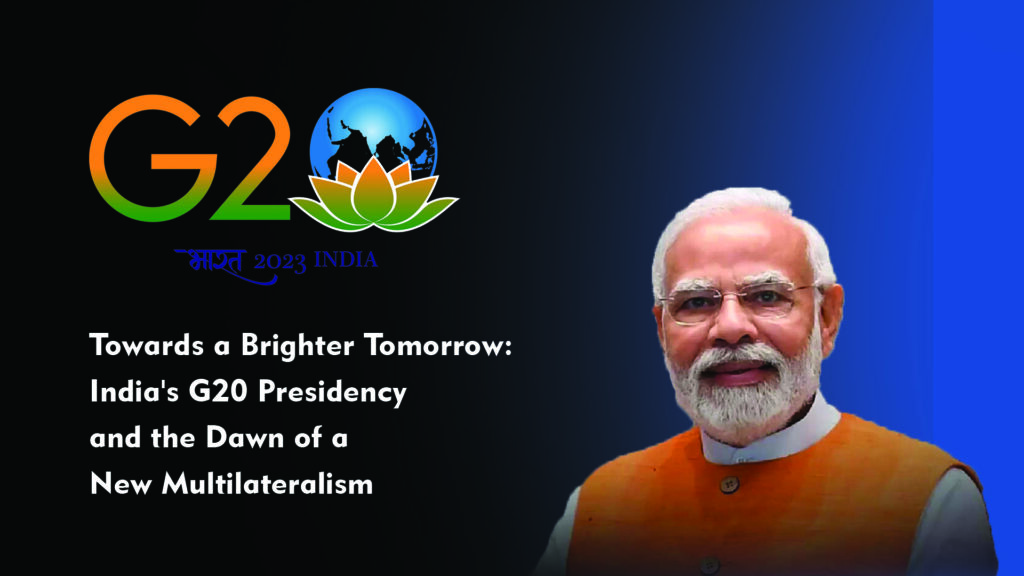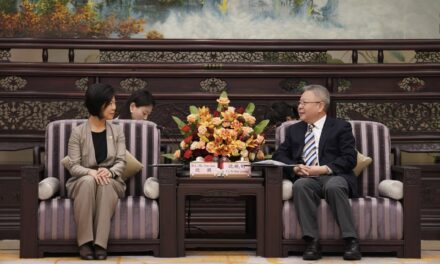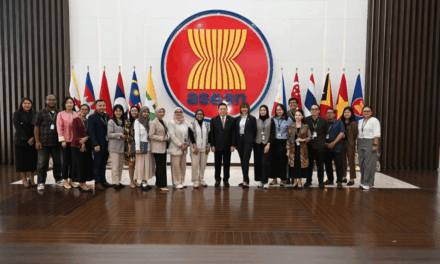
Reflecting on 365 days of India’s G20 Presidency—a commitment to inclusive progress, environmental sustainability, and global cooperation.
Today marks the completion of one year since India took on the esteemed role of the G20 Presidency. The responsibility undertaken amid a global landscape rife with challenges, including the ongoing recovery from the Covid-19 pandemic, looming climate threats, financial instability, and debt distress in developing nations. This occurred against the backdrop of declining multilateralism and a world grappling with conflicts and competition.
Prime Minister Shri Narendra Modi, in his role as the G20 Chair, envisioned an alternative path—shifting from GDP-centric to human-centric progress. The objective was to unite the world under the spirit of ‘Vasudhaiva Kutumbakam,’ emphasizing the idea of ‘One Earth, One Family, One Future.’ The New Delhi Leaders’ Declaration (NDLD), unanimously adopted by all G20 members, reflects this commitment.
Inclusivity has been a cornerstone of India’s presidency, exemplified by the integration of the African Union (AU) as a permanent member, expanding the G20 to include 55 African nations and 80% of the global population. The ‘Voice of the Global South Summit’ marked a turning point, giving voice to the concerns of developing nations.
India’s domestic approach involved the active participation of its citizens through “Jan Bhagidari” events, engaging 1.4 billion people. The G20 2023 Action Plan emphasizes a cross-cutting, action-oriented approach to sustainable development goals (SDGs), focusing on health, education, gender equality, and environmental sustainability.
A crucial aspect of India’s contribution is the Digital Public Infrastructure (DPI) Repository, featuring over 50 DPIs from 16 countries. This collaborative effort aims to unlock the power of inclusive growth through digital innovations.
The G20 Declaration outlines a ‘Green Development Pact,’ addressing the delicate balance between combating hunger and protecting the planet. It calls for a tripling of global renewable energy capacity by 2030, coupled with initiatives like the Global Biofuels Alliance and a push for Green Hydrogen.
In the pursuit of climate justice and equity, the declaration urges substantial financial and technological support from the Global North, recognizing the need for trillions of dollars to fulfill developing countries’ NDCs by 2030.
The New Delhi Declaration underscores India’s commitment to climate action, policy coherence, reliable trade, and gender equality. During India’s presidency, G20 achieved 87 outcomes and 118 adopted documents, signaling a significant rise in collaborative efforts.
As India hands over the G20 Presidency to Brazil, Prime Minister Modi expresses confidence that the collective steps taken for people, planet, peace, and prosperity will resonate for years to come.
Source – PIB
















